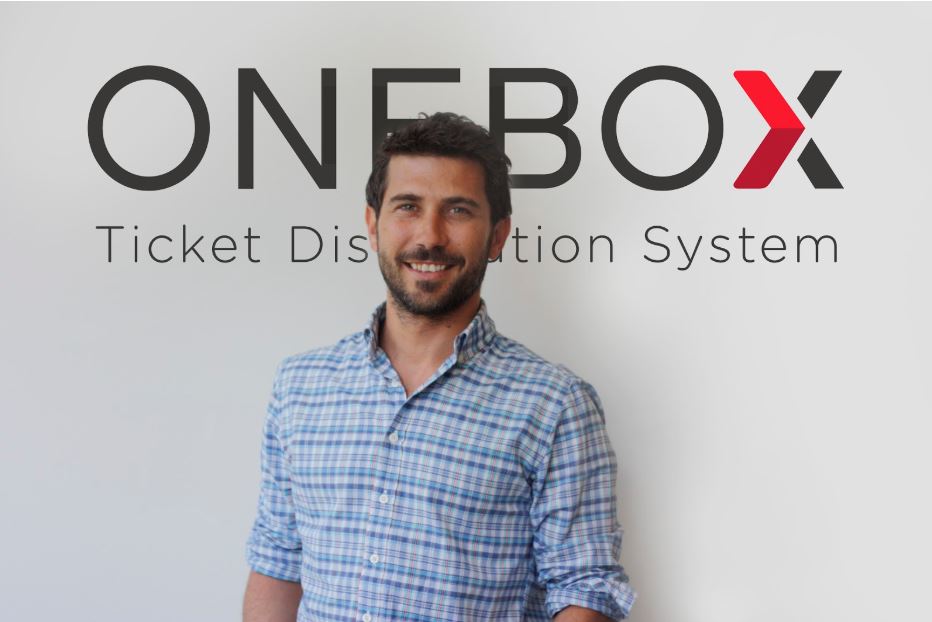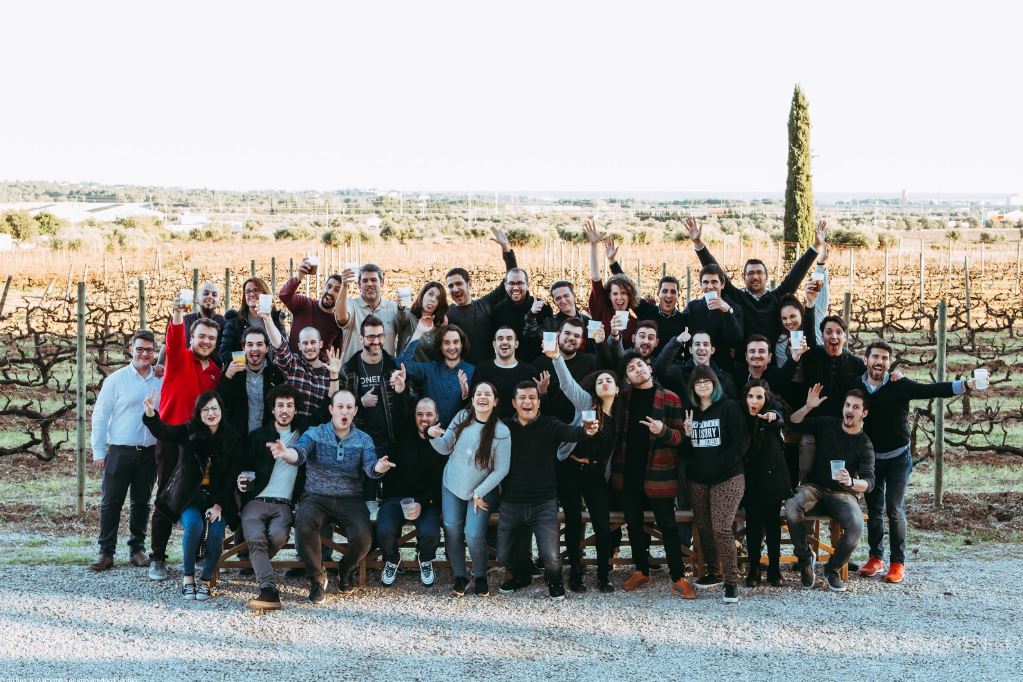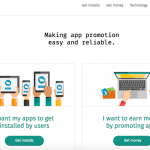Onebox was launched by Carlos Galí in 2010 to solve two pain points in the live entertainment ticketing sector. Customers were struggling to find tickets to their favourite shows, and organisers were struggling to manage ticket sales across channels. Enter Onebox. To meet these needs, Onebox developed a global ticket distribution system that allows event organisers and venues to boost their ticket operations by managing multiple sales channels through one single system. Less than a decade after its inception, the startup has evolved into a 70-strong company that has issued about 30 million tickets and works with the biggest clients within the sports, music, arts, museum and theme park industries.
To give you some insight into one of the biggest success stories to come out of Catalan entrepreneurship in recent years, we’ve been speaking to Carlos Galí, CEO & founder, who shares his experience of founding and growing this venture:
Spotting A Real Pain Point & Grasping The Opportunity

“We realised that we had a very good opportunity in the market to make things better for people”, Carlos Galí, CEO & founder,at Onebox
Before launching Onebox, Carlos worked as a sports event organiser for Octagon and then as Chief Commercial Officer for the sales ticketing channel firm ServiCaixa. During this time, he experienced first-hand a central problem within the ticketing sector, that had yet to be addressed with a proper solution:
As he recalls: “People in the industry really wanted to work with multiple ticketing systems and split their venue inventory across different channels. However, from a promoter or venue point of view, that meant knowing how to run multiple different systems – you were forced to extract sales information from all these different channels and aggregate that data in order to get a holistic view.” Most promoters, venues and event organisers simply didn’t have the resources or capacity to effectively manage such a complex multi-channel operation themselves.
From a user perspective, these distribution and multi-channel issues created terrible user experiences for people trying to secure tickets too. Customers could only access a limited amount of tickets on each platform and for specific sectors. As a result, events often appeared to be sold out while limited tickets were still available on other channels and at different prices. Besides the struggle to access tickets in the first place, the lack of consistency when browsing across different locations was another negative aspect that frustrated customers.
“We realised that we had a very good opportunity in the market to make things better for people”, Carlos told us. From then on, he started to look at other industries with similar characteristics, such as travel – similar to entertainment in that vendors were also offering a limited number of tickets (or seats) for a specific event (or flight) on a particular date. Carlos then analysed how these sectors were solving their own online distribution problem, how vendors sold tickets effectively via multiple online channels, and finally how he could apply these forward-thinking techniques to the ticketing industry. As a result, the idea emerged to develop a global ticket distribution system, Onebox.
The Foundation & Challenges To Success
Choosing a home for the company was pretty much a no-brainer. As Carlos recalls “I was born here, my network was based here and Barcelona is a busy hub of events and ticketing companies. It’s a top city in terms of the startup ecosystem. I didn’t even consider setting up elsewhere.”
However, over time, the rapid growth of Barcelona as a startup city has also brought with it some downsides. The increased number of new ventures and tech companies has ramped up developer salaries and competition for talent in the city. For Onebox, talent has always been at the heart of their success as they recognised that one of their main challenges would be to build a strong team to develop a great product from scratch. This product would then form the basis for building trust with influential distributors. As a result, the company put a particular emphasis on hiring and maintaining top talent. This investment in its people has enabled them to keep their original development team – at least partly – intact and united for almost a decade, a sizeable achievement in such a competitive landscape and city.

Within less than a decade, Onebox grew from startup to a successful company with 60+ employees
Besides the fight for talent, perhaps the biggest obstacle stems from the sheer nature of Onebox’ business model. As a marketplace model, the company relies on distributors, products and channels for their value proposition. A key challenge was therefore to get influential parties on board, to integrate them, and to build trusting relationships with different players in the industry. This meant they couldn’t simply focus their efforts on increasing sales, but they also had to also dedicate a significant amount of resources into acquiring new channel partner, whilst all the while developing their all-star product.
In spite of the many different challenges that come with running a startup, Onebox has enjoyed great success and continuous growth. Today, it would be unjust to call it a startup anymore as the firm now employs 70 employees and has sold approximately 30 million tickets through its system. They currently have all the most important sales channels within the Spanish market integrated within their platform, and are continuing to grow their international distribution network with the integration of Ryanair tickets. As a ticketing solution leader, Onebox is working with the biggest names in live entertainment. When we asked him what he’s most proud of, Carlos told us: “we’ve changed the way the ticketing industry works and how people buy and sell tickets. We have improved the experience for promoters, channels and event goers and made their lives easier.”
Onebox’ Future & The Vision For The Ticketing Industry

After achieving great success in Spain, Onebox is already looking at new markets to accelerate growth
Looking out on the future for Onebox, Carlos predicts the ticketing industry will see extensive consolidation as multiple ticket providers are acquired and bought by larger companies. This will lead to less diversity in the sector, as it becomes increasingly dominated by a handful of leaders. However, as a fast-paced, ‘hot’ industry, the ticketing sector looks set to continue to grow and innovate in years to come. And Onebox won’t be slowing down either: the company has already started to look actively beyond the Spanish market, with its growth into the United Kingdom and Latin America already well underway. But that’s not all. They’re planning to expand their solution worldwide, and grow their distribution network to encompass not just entertainment and sport, but also the biggest players in tourism too.
Key Advice For Aspiring Entrepreneurs
While reflecting on the success of his startup, Carlos points out three key aspects that form the foundation of a successful company in his opinion. ”You need to know your market, you need to know its key players and you need to solve a need.”. Regarding the latter, he adds the following advice for aspiring entrepreneurs: “make sure you are focusing on solving a real need and not just a ‘user wish’”. In other words, your idea needs to be an absolute need-to-have, not just a kinda-nice-to-have. He added that while research and meeting a real need is a great foundation for a successful venture, it’ll take more than that to be successful. The key ingredient? “Work hard and create your space”. We look forward to seeing how Onebox will continue to disrupt the dynamic entertainment space in Barcelona and beyond in the years to come.







Leave a Reply